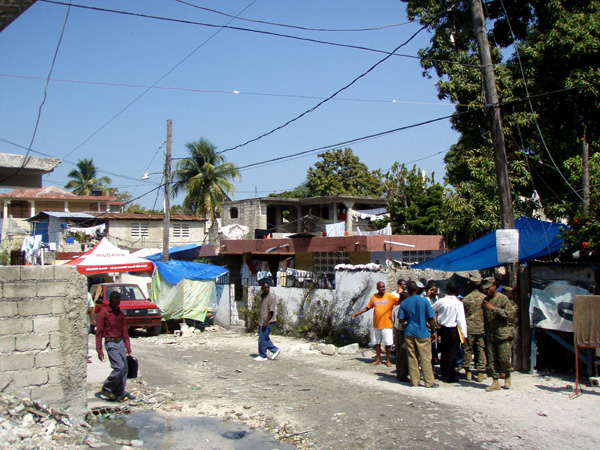Haiti declares state of emergency as gangs tighten grip on central region

[Typical street scene in Haiti. Photo Credit to Pixnio]
On August 9, 2025, the Haitian government officially declared a three-month state of emergency across the central departments of West, Artibonite, and Center following a resurgence in armed gang’s violence.
Officials stated that the extraordinary measure was being implemented to combat insecurity and address the ongoing agricultural and food crisis.
The central region has been experiencing a series of gang attacks in recent years, leading to mass displacement of residents.
Reports describe frequent farmer killings, destruction of property, and kidnappings.
United Nations (UN) figures statistics indicate hundreds of Haitians have been killed, injured, or abducted in recent months.
From April through June alone, more than 1,520 people were murdered, while over 5,600 were killed nationwide in the past year.
At least 609 people sustained injuries, 185 kidnappings were recorded, and hundreds of sexual assaults, including cases involving children, were reported.
The violence has intensified since an earlier curfew and emergency declaration in Port-au-Prince.
Now, the unrest has spread beyond the capital into rural strongholds, deepening the crisis in the agricultural heartland.
Prolonged political instability, the 2021 assassination of President Jovenel Moïse, the uncertainty of an interim government, and recurring corruption scandals have all contributed to what observers describe as the near paralysis of state institutions.
Law enforcement has been largely incapacitated, struggling with shortages of personnel, equipment, and external support.
Only about 1,000 members of the 2,500-strong Kenyan-led multinational force requested for Haiti are currently on the ground, leaving security operations stretched thin.
Amid the absence of state authority, local self-defense groups have emerged, often engaging in violent clashes with gangs and intensifying a dangerous cycle of conflict.
Some gangs are attempting to establish their own administration in occupied areas, effectively calling themselves "gang governments."
In places like Miravalle, armed groups have organized street cleaning and home repairs to gain psychological control over the local populations.
The humanitarian situation is equally severe.
Currently, more than 1.3 million of Haiti's 12 million citizens are displaced, many sheltering in makeshift tent camps.
Approximately half of the population is facing extreme food scarcity.
Access to clean water, medical care, and basic services has been severely restricted, while most schools, hospitals, and businesses remain closed or destroyed.
Security operations supported by the international community, including UN, U.S., and Kenyan security operations, are struggling to respond to the scale of the crisis.
The local government, security system, and rule of law have rapidly collapsed, to the point that the international community has officially designated the country a "failed state."
Diplomatic missions from the United States and some European countries have even issued urgent warnings to their citizens, urging them to "leave Haiti immediately."

- Yena Jeong / Grade 10
- St. Johnsbury Academy Jeju

![THE HERALD STUDENT REPORTERS [US]](/assets/images/logo_student_us.png)
![THE HERALD STUDENT REPORTERS [Canada]](/assets/images/logo_student_ca.png)
